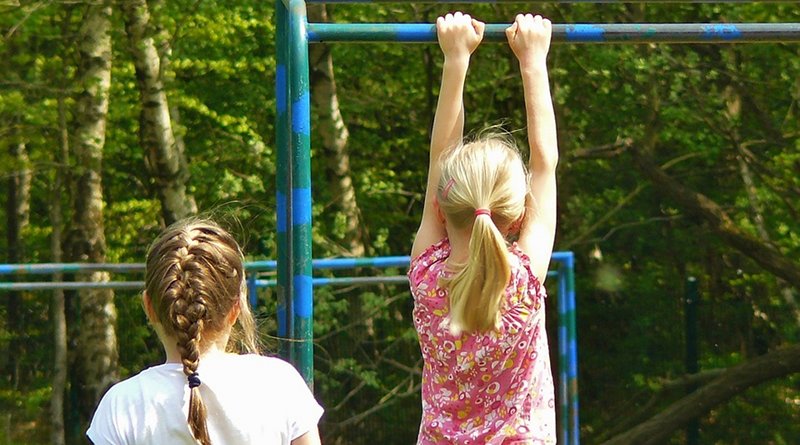Schoolchildren Who Exercise Are Smarter And Perform Better Academically
The ActiveBrains study, led by the University of Granada, analyzes the effects of a 5-month aerobic and resistance exercise program, performed 3 times a week, in children with overweight/obesity. The researchers/as have observed that the schoolchildren who performed exercise, compared to a control group, improved their intelligence in a prominent way, and also their cognitive flexibility and academic performance.
Is it possible to make humans smarter? There has been a traditional belief that intelligence is a human being characteristic predominantly stable, that is, a person is born intelligent and is intelligent throughout his/her life and/or the opposite. However, in recent years this conception has begun to change, starting to consider that intelligence can be more modifiable than previously thought. There are well-known benefits of regular physical exercise on physical, mental and cognitive health in people at any age, but to date there was no conclusive evidence confirming whether regular physical exercise could improve people’s intelligence.
Now, a study was led by researchers from the Department of Physical Education and Sports of the University of Granada, in collaboration with Psychology researchers from the same university and with national and international external collaborators, has demonstrated that schoolchildren who perform physical exercise are more intelligent and perform better academically.
This work, that the prestigious journal JAMA Network Open publishes this week, has demonstrated that in a stage of growth and cognitive and brain development, childhood, physical exercise practiced regularly for almost half a year improve total intelligence, and especially, crystallized intelligence, which is the kind of intelligence associated with verbal vocabulary and wisdom acquired throughout life in a school context and beyond.
In addition, the exercise program significantly improved cognitive flexibility, which is a person’s mental ability to adapt to changing tasks or rules, maintain multiple concepts simultaneously and shift attention between different tasks/rules. It is important to note that the exercise program also improved overall academic performance, with mathematics and problem solving being the most benefited capacities.
“From these findings, we extract an important take-home message for mothers and fathers: if your children do not perform well academically, do not punish them by not playing out or exercising, or withdraw them from an after-school sports activity, do just the opposite”, Francisco Ortega says, Professor at the University of Granada and principal investigator for the study.
60 minutes per day of exercise
“We need to try to ensure a minimum of daily physical exercise, ideally 60 minutes per day of moderate-intensity aerobic physical activity, including at least 3 days a week of high-intensity physical activity and also activities that stimulates muscle and bone strengthening as recommended by the World Health Organization (WHO)”, says the UGR Professor, who participated in the development of these physical activity recommendations from the WHO in 2020.
It is important to understand that overweight and obesity are a major health problem in the developed and developing world, being especially worrying in Spain, one of the leading countries in the ranking of overweight/obesity levels in Europe with 1 in 3 children presenting this condition. Obesity has negative effects on general health and, more recently, it has also been observed that it has effects at the cognitive and brain level.
“The present study has important implications for this population exposed to increased risks”, José Mora says, Associate Professor from the Department of Physical Education and Sports of the University of Granada, since “This study shows that physical exercise is an effective tool to counteract the negative effects of obesity at a cognitive and academic level”.
Finally, the researchers from the UGR says that the type of physical exercise performed in this study is transferable to the school environment. The exercise program was based on group games, without advanced equipment, which involved running on an outdoor court and strength work with their own body weight or their partners’ body weight. All this was performed at a relatively high intensity, with the average intensity of the full session being around 70% of the maximum heart rate of the children, who exercised an average of 3 sessions per week of 90 minutes each, which would add 4.5 hours of exercise weekly.
“If we could increase the number of hours of physical education up to 1h daily, as is already done in other European countries and is being demanded in Spain, we could improve the physical and mental health of children and, as this study demonstrates, also the intelligence, cognitive and academic performance”, concludes Francisco Ortega.
Results from this investigation were presented this week by the Professor of the UGR at the European Congress of Sports Science, the most important Congress of Sport Sciences in Europe, which is held in Sevilla.

